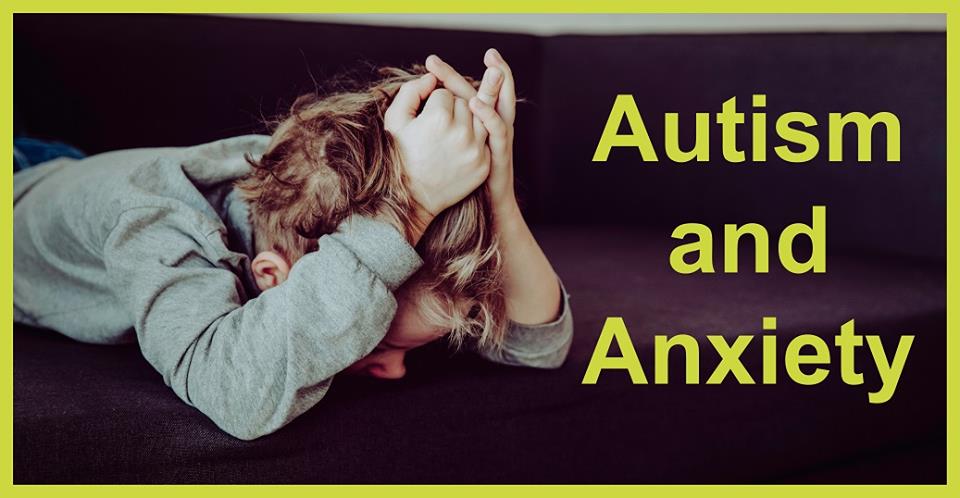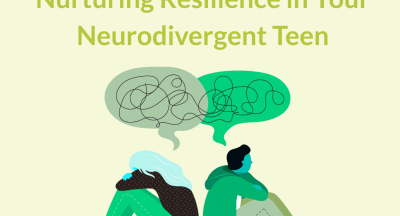
16/09/2021
by Dr Judy Eaton
Anxiety, Autism, Blog, Child and Young Person, Parenting related, PDA
0 comments
Last updated: 28th November 2023
This article is an update of our original article written in 2017 – long before we, and our children, were faced with the prospect of COVID 19 and the associated disruptions to school and everyday life. I am talking about about Autism and anxiety, an issue which has taken on a new meaning in the last eighteen months. Previous research suggested that up to 85% of autistic individuals will suffer from anxiety. An autistic child is twice as likely as a neurotypical (non-autistic) child to experience anxiety. A significant number will suffer from extreme anxiety – to the point that it affects not just their life but their family’s too. Even before the lockdowns, some children were too anxious to attend school or social events. I am not talking here about reluctance to go to school, or a mild feeling of anxiety about a new challenge or situation, I am talking about complete meltdown and panic attacks at the thought of whatever is asked of them. In our clinic we have even seen children who are so anxious that even the mention of school sends their anxiety levels off the scale. This type of anxiety is debilitating. We always say to people, visualise the worst situation you can possibly imagine being in; one where you feel under threat or completely overwhelmed. Luckily, for most of us this only happens from time to time. For autistic children (and some autistic adults) this can happen every day of their lives. It is no wonder, therefore, that some will do anything (including hitting out or trashing the house) in order to escape from this feeling.
However, in this article I want to talk specifically about the impact of this anxiety upon parents who are often struggling to deal with the fallout. Even back in 2017 we were seeing, receiving emails, and telephone calls on a daily basis from parents who were quite literally broken. Loving and caring parents who were experiencing what amounted to domestic abuse every day of their lives, parents who reported symptoms of trauma (flashbacks, panic attacks and intrusive thoughts). Very often these were mothers who had to give up everything – career, friends, dreams of their own, in order to provide care and support (and quite often schooling) for their children. Since 2020, with repeated school closures and the need to self-isolate if exposed to COVID, this situation has impacted upon many more parents. For some, the pressure of not having to take an unwilling or distressed child into school every day has come as a relief and there are reports that, for some, family life has become easier. The picture is not as clear for those who have continued to struggle.
In 2017, there was no easily accessible support for these parents. Today, the situation is even worse. The government is committing billions of pounds worth of extra funding to supporting the NHS. However, it is not yet clear how much, if any, of this funding will be dedicated to mental health support. Across the country, reports of high levels of anxiety, eating disorders and self-harm in children continue to rise.
In desperation parents often approach their GP (sometimes repeatedly) and ask for a referral to anyone, anywhere, who might be able to help.
But just how are parents supposed to manage a meltdown which goes on for hours?
Instead of support though, they find that they are criticised and talked about in the classroom and by other parents in the playground and, sadly, even some professionals. ‘I don’t know what the problem is, he/she is fine at school’, ‘if he/she was my child, he/she wouldn’t behave like that’. Then follows the speculation and discussion about what these poor parents must be doing (or not doing) to manage their child. ‘He/she just needs boundaries’, ‘Try rewarding good behaviour and ignoring the bad behaviour’. For some unfortunate parents, when reported behaviour or anxiety is not obvious in other settings, they are labelled as ‘anxious parents’ and even, in some cases, accused of fabricating, or exaggerating the difficulties their children face.
But just how are parents supposed to manage a meltdown which goes on for hours? ‘Leave him to cry, he will soon get over it’. What if he or she doesn’t just ‘get over it’ and what if crying becomes a full-blown panic attack where the child threatens to stab him or herself with a knife, or ties a ligature round his or her neck, or where the only way to escape from this ball of fury is to lock yourself (and your other children in the bathroom) while your child launches him or herself at the door armed with a knife?
It is no wonder that these parents arrive at our clinic quite literally shaking. They are constantly on the alert at home, waiting for the next explosion. Many describe it as ‘walking on a knife edge’ or ‘walking on eggshells’. They try and put on a brave face, tell us how much they love their child and how they want to make sure he or she has the best possible future, but they are often exhausted, burned out and, not unsurprisingly, depressed. Most are untreated and unsupported and simply left to get on with it as best they can.
They are reporting EXACTLY the same behaviour and reactions in their children.
It is important to note that these are not isolated incidents or confined to one particular group of parents. We have seen parents from as far afield as the Middle East, all parts of Europe and the United States of America and what is so compelling is that their stories are unbelievably similar. These are not parents who have read something on the internet, or seen a programme on the television. They are reporting EXACTLY the same behaviour and reactions in their children.
In addition, they are stumbling about in the dark in terms of what to do for the best. If your child is anxious and wants to spend every waking hour on the x-box or has a complete meltdown every morning about going to school, what should you do? Accept that an autistic child needs time to unwind and effectively re-charge their social battery, so you let them play for hours in a darkened room, alone apart from online ‘friends’? Accept that for some children, formal schooling is not working, so you home school? What will happen to that child when they become a teenager or an adult? Will they ever come out of their bedroom and engage in a ‘normal’ life? What does ‘reducing demands’ mean?
To some extent, everyone, including the professionals, is working in the dark. In years gone by, although there were undoubtedly people who would have been diagnosed with both Autism and the PDA profile, there were no x-boxes or smartphones; children were not placed in a competitive, results-driven school environment and there was no TV or social media. There is also little research about what happens to autistic adults, particularly those with the PDA profile.
Many of the parents of children we see at our clinic often say they recognise features observed in their children in themselves. Some report that life got easier once they were in charge of their own destiny and not subject to endless demands from others. Others simply said that they grew out of the extreme behaviour and found ways to manage their anxiety. Others have not been so lucky and may be the absent parents, those who have experienced some form of breakdown or self-medicated with drugs and alcohol. What is very clear is that teachers, mental health professionals and those involved in policy making, cannot simply continue to ignore this problem. Everyone is aware of the enormous pressures on the NHS at the moment. However, parents cannot just be left with no support for themselves or their children. Without appropriate diagnosis and intervention strategies, the problems experienced by these families can only get worse. There is no point in trying to sweep this problem under the carpet, continue to blame parents or question their stories when they do seek help. There are some children who simply cannot respond to a ‘Supernanny’ approach to discipline and child-rearing, and they, and their parents, need support and understanding now.
Related Posts
When parents disagree over the need for an assessment
14/07/2022
Parents disagreeing about the need for exploration/identification of Autism in...
Our new ‘Managing Emotions and Relationships Skills’ group
24/05/2024
A 10 week DBT-informed group covering topics such as Mindfulness, Distress...
Noah’s journey
20/10/2023
The story of Noah really highlights how, with the right support, autistic young...
Beyond Protection: Nurturing Resilience in Your Neurodivergent Teen
06/09/2025
Go beyond protection for your neurodivergent teen. Build resilience with...




